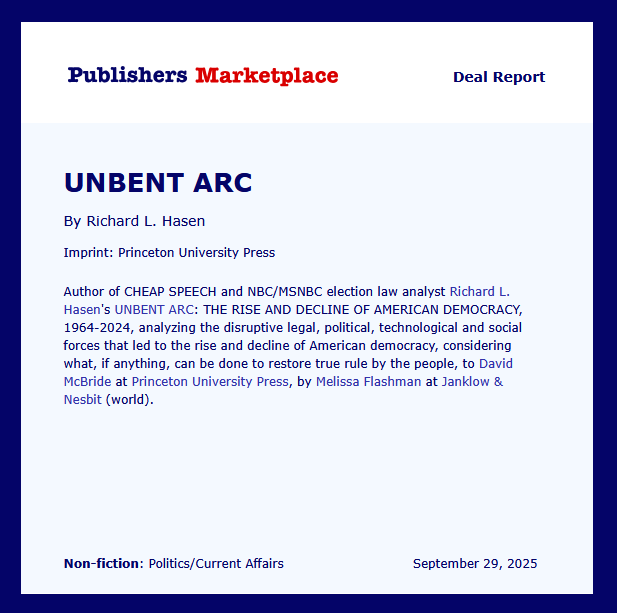Tony Gaughan has posted this draft on SSRN (forthcoming, Ohio State Law Journal). Here is the abstract:
The role of money in politics poses a thorny challenge to democratic government. In a healthy democracy, individual voters should have an equal influence on election outcomes. But robust political discourse depends on candidates having access to effective means of communication. In the absence of a comprehensive public funding system, candidates must turn to private donors to finance their campaigns. Candidates’ reliance on wealthy supporters creates the risk that the rich will exercise disproportionate influence over public policy. Principles of free speech and democratic equality thus sit uneasily together in privately funded campaign finance systems. The United States is the leading case in point. Since the 1700s, Americans have struggled to strike a balance between access to campaign funds on one hand and democratic accountability and responsiveness on the other.
This article examines the history of American campaign finance law prior to the adoption of the 1974 amendments to the Federal Election Campaign Act. The period from 1619 to 1974 saw the rise and fall of three distinct campaign finance eras characterized by unique laws and practices: the Aristocratic Era (1619-1790s), the Patronage Era (1790s to 1883), and the Nominally Regulated Era (1883 to 1974).
This article contends that the American campaign finance system has proven exceptionally difficult to align with democratic values. The Aristocratic Era, the Patronage Era, and the Nominally Regulated Era reveal the extent of the alignment challenge. On paper at least, each era’s campaign finance system sought to facilitate representational and policy alignment with democratic values by ensuring that elected officials reflected the will of their constituents. But in each case, the reforms failed to achieve the long-term goals of the reformers. Technological change, partisan manipulation, wealthy special interest groups, and evolving popular and elite preferences inevitably led to misalignment. History thus provides a cautionary note for modern campaign finance reformers. It suggests that aligning campaign finance law may be the hardest alignment challenge of all.
